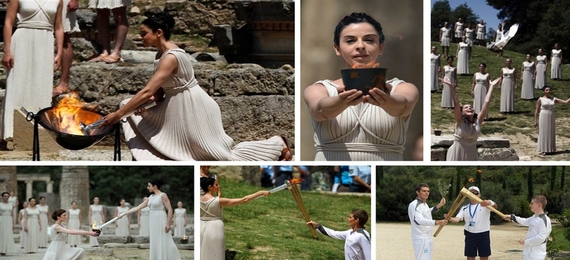
Get to know everything about the 8 traditions of the Olympic Games that have still hung around from the day it was re-introduced in Athens on6th April 1886 by Baron Pierre de Coubertin, a Frenchman who proposed the idea in 1884.
Ancient Olympics History
The pentathlon was important to Greek history. The game primarily involved pleasing the Gods with various Games for men and women. Men and unmarried women performed separately to pay their tribute to Zeus and Hera from 776 BC to 383 AD.
What Is the Olympic Motto?
Coubertin’s close friend Father Henri Didon suggested the present Olympic motto, “Citius, Altius, Fortius” meaning “Faster, Higher, Stronger”. The Olympics also have 7 values: friendship, excellence, respect, courage, determination, inspiration, and equality.
Where Does the Tradition of Olympic Games Come From?
- A. Rome
- B. Greece
- C. China
- D. All the Above
Olympic Traditions
Now for the 8 traditions of the Olympics that have seen the test of time:
Olympic Rings and Flag
The design was suggested by Coubertin in 1814. The colors blue, yellow, black, green, and red represent Africa, America, Asia, Europe, and Oceania respectively. The first flag was flown in Antwerp in 1820 and was replaced in 1888.
Olympic Oath
The first oath written by Coubertin was recited by Belgian fencer Victor Boin on behalf of all athletes in 1820. The wordings of the oath have transformed through the years and a new oath for coaches, judges, and referees was added.
What Is the Olympic Creed?
“The most important thing in the Olympic Games is not to win but to take part, just as the most important thing in life is not the triumph but the struggle. The essential thing is not to have conquered but to have fought well.” This was inspired by a speech by Bishop Ethelbert Talbot at a service for Olympic champions in 1808.
Olympic Hymn
The hymn was written by a Greek poet Kostis Palamas and was composed by Spyros Samaras. Though it was first sung in 1886 it became official only in 1857. The host country sings the same in its national language.
Olympic Flame
The flame is a tradition followed by Greeks visiting Hera’s abode in Greece. The tradition is still followed today with women dressed like Ancient Greece women. It was introduced in 1828 in Amsterdam. It stays lit from the beginning to the end.
Olympic Torches and Torch Relay
The flame is lit in Olympia the original place of the Olympic Games is transported to the host country every time. This tradition was introduced in 1836 to represent the endeavor for perfection and purity. The cauldron design was changed 18 times and Ron Clarke was the first person to start the relay.
Olympic Medals
First place winners got an olive branch wreath for the head until 1885, then winners got a silver medal, and second place winners got bronze cups or trophies until 1803. Gold, silver, and bronze medals came into existence in 1804. The medals are bitten because real gold will show a bite mark.
Ceremonies
- The opening ceremony parade always has the Greek team in front followed by other teams in alphabetical order of the host country’s national language and with the host country’s team at the end. This was introduced in 1908 in the London Games.
- The commentary is always done in English and French to honor Coubertin and because French is a diplomatic language.
- The national anthem of the winning country or the athlete’s national anthem will be played for 80 seconds.
- The Olympic flag is handed over by the host country’s mayor to the next host country’s mayor with all athletes entering the stadium as one team.
Are you ready to play a quiz on the traditions of the Olympic Games?